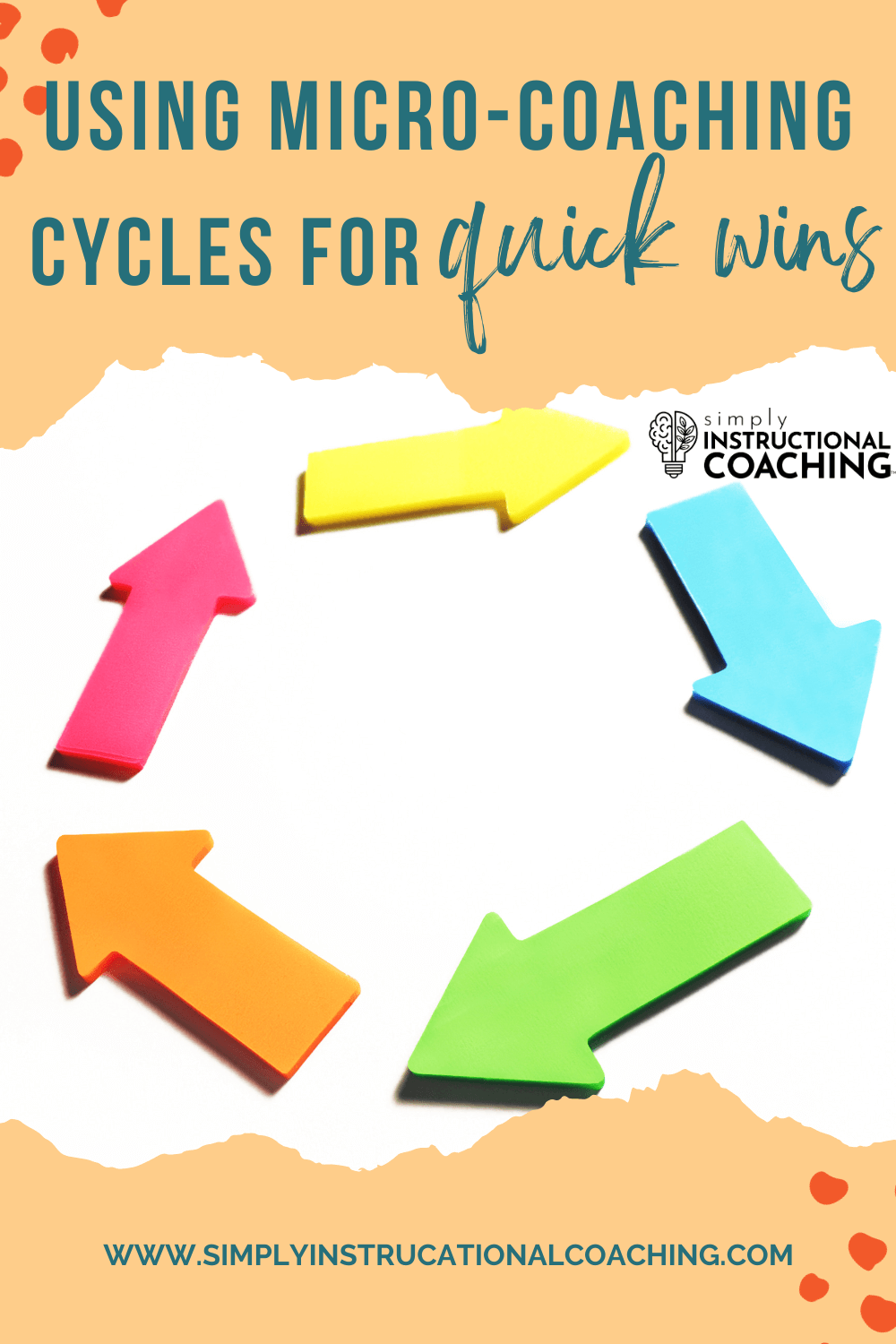
We could all use a win right now, am I right? One way to give teachers an instant dose of success is through Micro-Coaching Cycles.
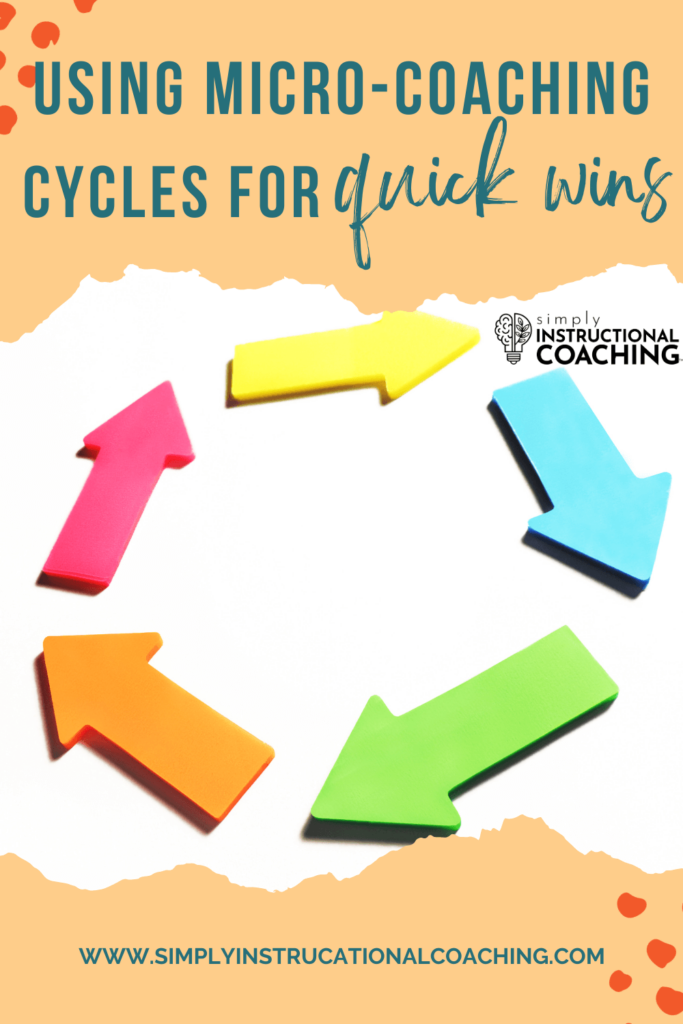
This week, a teacher said to me, “I don’t even feel like I know how to be a teacher anymore. I’m not sure that anything I’m doing with hybrid learning is working.” This was a marvelous, experienced, teacher, feeling a complete lack of confidence after a year of teaching in a totally new way. She needed a win.
Micro-coaching cycles have the same key components as full-on coaching cycles. The only difference is that they have a clearer focus. Instead of taking four to six weeks, micro-cycles are completed in one or two.
A full coaching cycle typically includes the following phases:
In a longer cycle you might observe-debrief-and intervene multiple times. You might need to discuss more than one strategy, co-plan, and co-teach several classes together. In a micro-cycle, because the goal is more focused, you may only need to address each phase once. Let’s dig into the steps to talk about how to adapt them for a micro-cycle.
Micro-Coaching Cycle Phases
Setting the Stage
Hopefully, you have set the stage already by building relationships, having a “Cupcakes with Coach” session, and getting to know each of your teachers. In this phase, you will also have an initial meeting with your teacher to clarify your role and your support offerings.
Baseline Observation
We briefly talked about baseline observations in the last post. They apply to both full coaching cycles and micro-cycles. The purpose of this phase is to identify which tier your teacher is in so that you can provide support accordingly.
Suppose that in your baseline observation, you noticed that the students are able to interpret what they read but they aren’t able to go beyond the text. The teacher has implemented basic decoding strategies but needs support with rigor and guiding the students to make inferences.
You might place this teacher in Tier 1 or Tier 2. They don’t need a ton of support but you could use some small adjustments to improve their instruction. A micro-coaching cycle, addressing rigor in the instruction of inferencing, would be appropriate.
Facilitate Debrief
This stage will look a bit different in a micro-cycle. Instead of looking at a big goal that a teacher will be working towards over the course of an entire unit or school year, you and the teacher will work together to set a much smaller, more action step.
A student-centered goal in a long-term coaching cycle might be: “Students will make inferences from a variety of texts.” For a micro-cycle, this goal is too broad and far-reaching to be measurable in a short amount of time.
Set a smaller, yet related goal that could be measured in just one or two lessons.
For example, with the goal above, your teacher might try to help students understand the idea of making inferences before even introducing any texts. The goal of the micro-cycle might be, “Students can make inferences after watching short video clips.”
In this meeting you also plan how you will measure progress toward the micro-goal. Since it will be implemented in a short period of time, the metric should be based on formative assessment data. This might include small assignments like an exit ticket or a quiz rather than an end of unit summative assessment or state test.
For the micro-coaching cycle goal above, you might plan to look at an exit ticket in which students see a short video clip and then list three inferences based on the clip.
Provide Interventions
You might model, co-plan, or co-tech to help the teacher meet this goal. Choose a very specific strategy to try with the teacher, something that they can practice quickly and then implement themselves in a single lesson.
For the mini-goal above, you might plan a lesson together. Perhaps in the lesson students will watch a variety of short video clips. After the first couple of clips, the teacher will ask probing questions to encourage the students to make inferences. Then, students will get into pairs and ask each other probing question, making inferences together. Finally, the students will do the exit ticket and form inferences on their own.
Before the class, you, the coach, could model asking probing questions that would help students make inferences. Alternatively, you might plan to co-teach the class and you could use on-the-spot coaching to facilitate good probing questions.
Observe the Lesson and Debrief
Finally, carry out the intervention and debrief again, reviewing the student data you planned to collect. Based on the data, you may need to plan a follow-up and try another strategy, but with such a small goal, you probably won’t have to cycle through more than twice. You should start to see progress quickly.
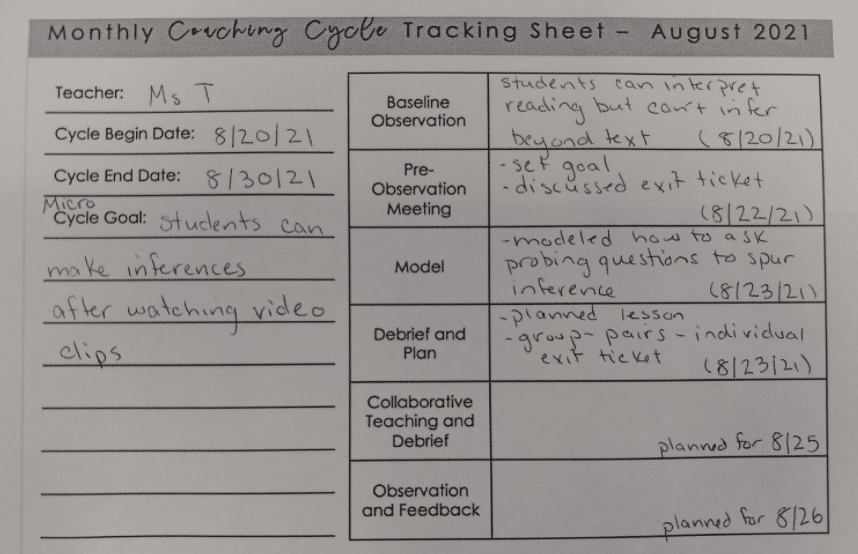
Form from the Track My Coaching Planner
Grab this Planner to Track Your Micro-Coaching Cycles
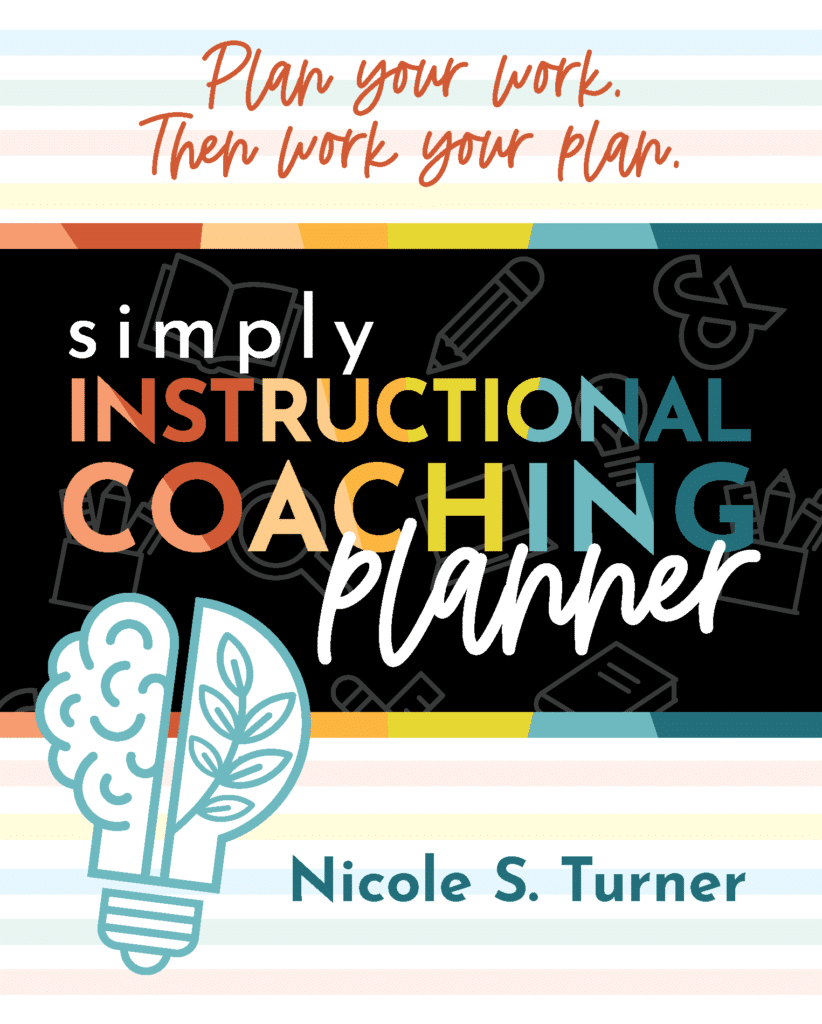

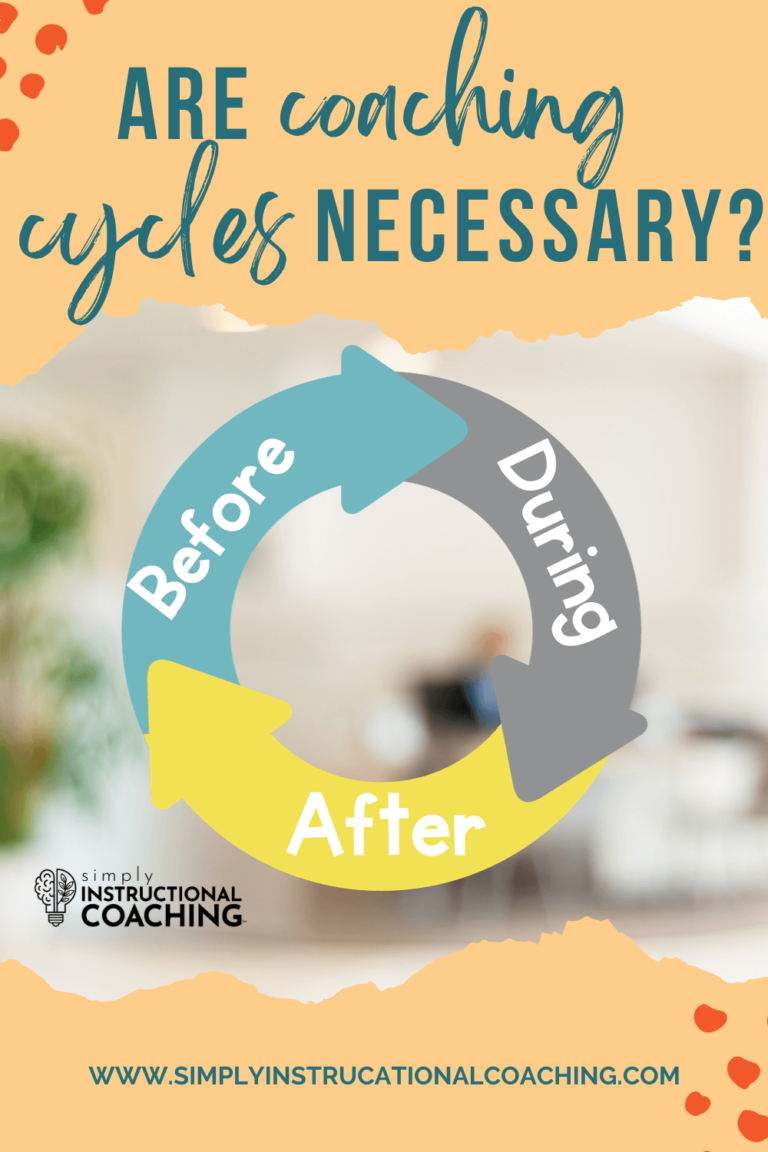
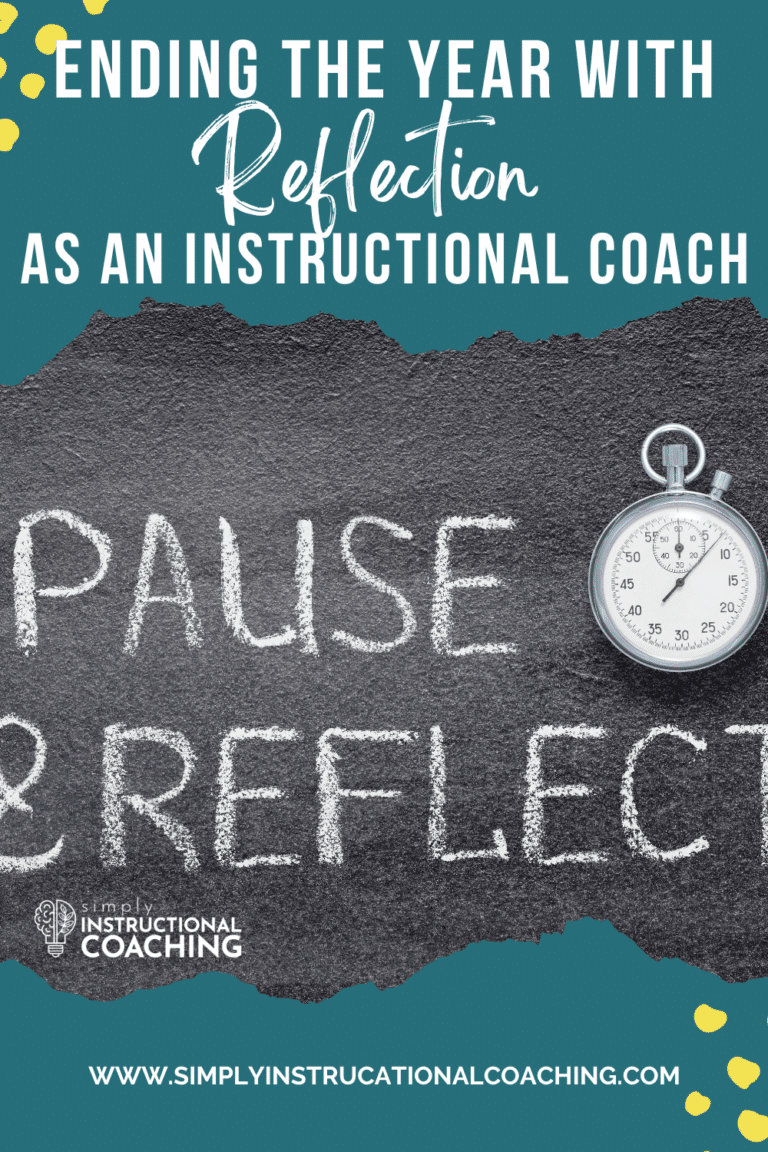
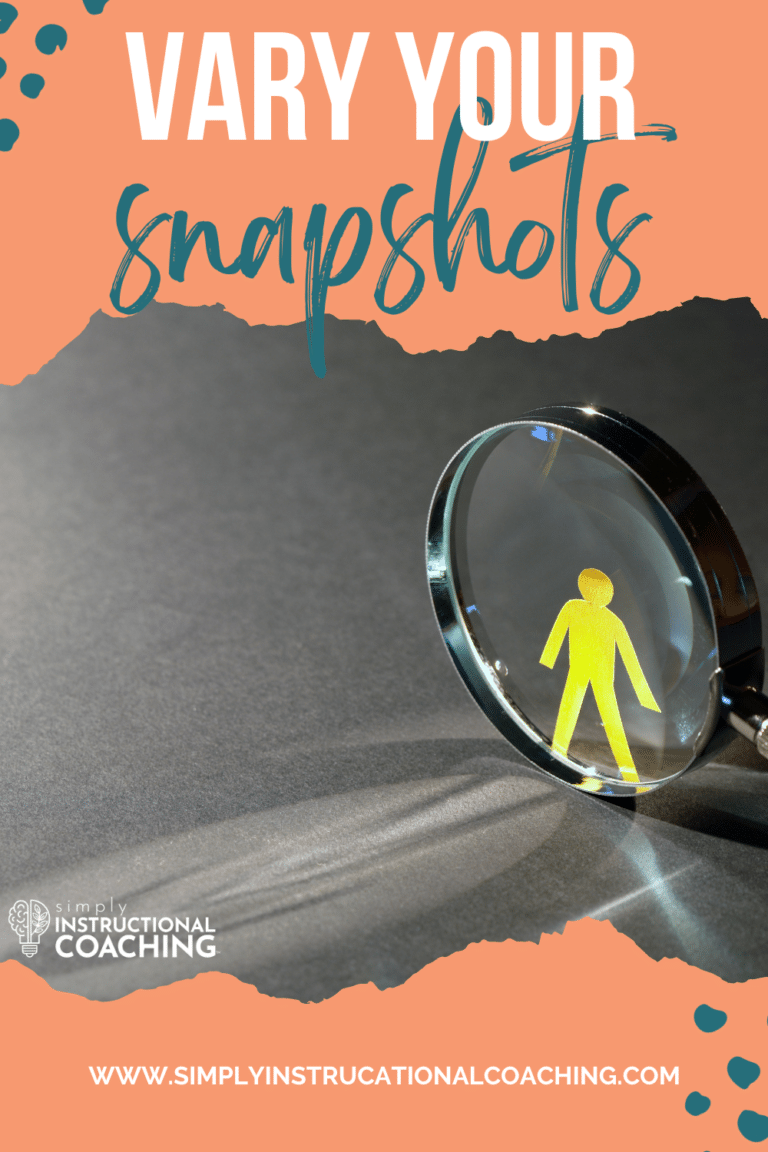
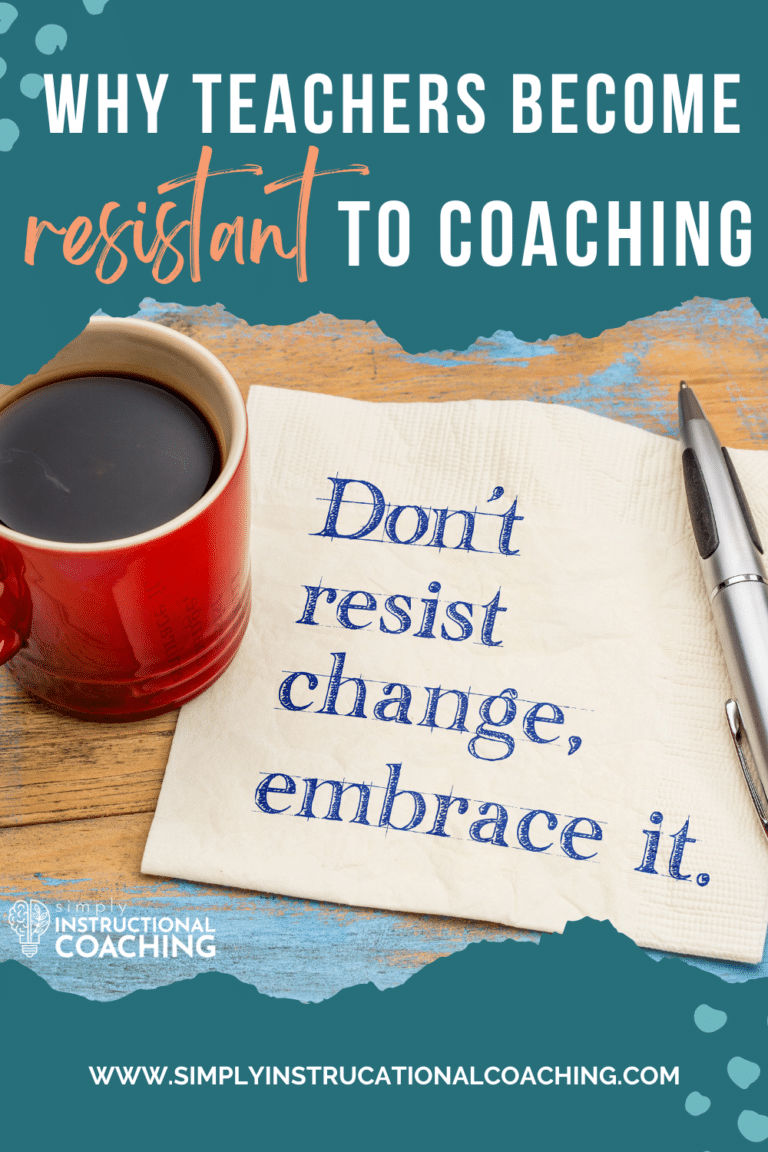

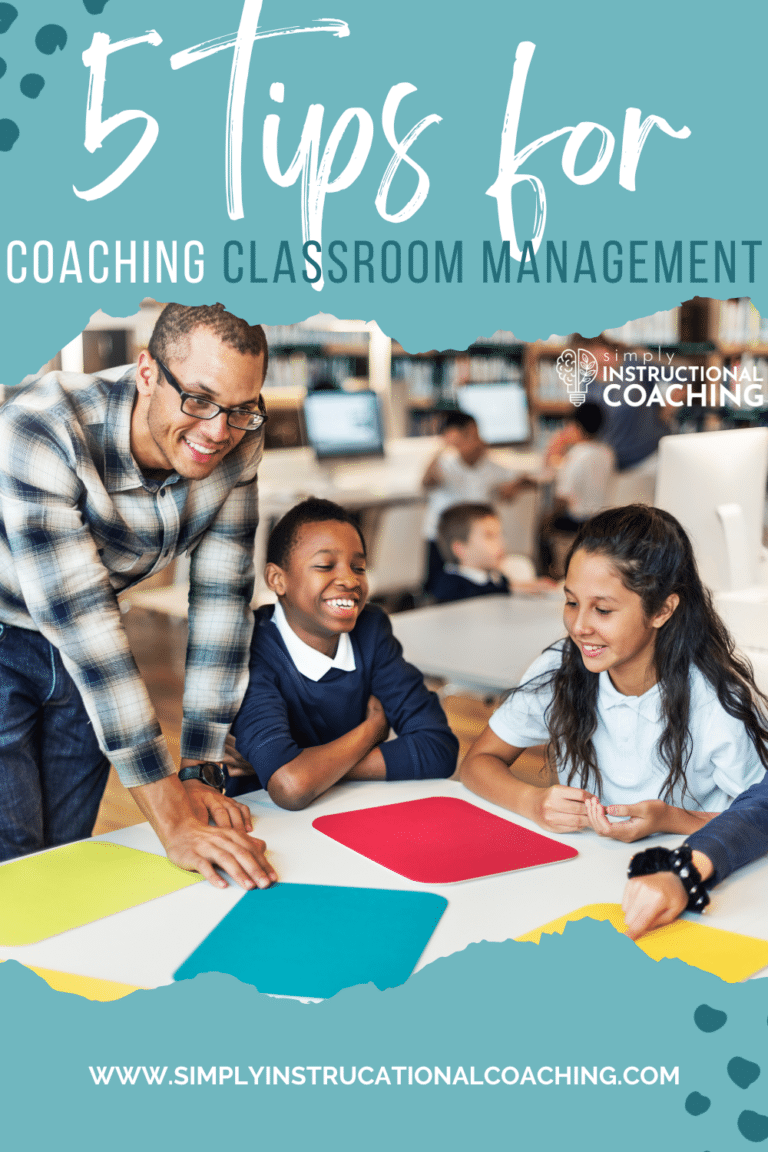
One Comment